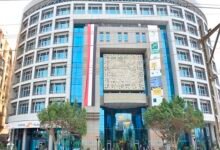SMEs get GHS100 million funding from Absa Bank

Absa Bank has disbursed GHs100 million under its 10 per cent Small and Medium-sized Business (SME)loan programme, marking a significant milestone that demonstrates the Bank’s longstanding commitment to empowering and driving the growth of SMEs in Ghana.
The initiative, which is in partnership with Mastercard Foundation, is a landmark financing programme from the Bank to help transform the landscape of SMEs with a lot of focus on women-owned businesses, young entrepreneurs, agribusinesses, and fintechs in Ghana.
“We have disbursed GHS100 million under the Absa 10% SME loan. This milestone is a testament
to our unwavering dedication to supporting SMEs businesses for growth and sustainability,” MrKoblaNyaletey, Executive Director – Retail and Business Banking, at Absa Bank Ghana ltd said in an interview in Accra yesterday.
He said “Small businesses are the lifeblood of our economy, and we are committed to providing them with the financial support and resources they need to succeed and thrive.”
Absa Bank Ghana he said, had always been committed to the growth and success of SMEs, recognising their power to transform the economy of the country.
“This support programme is an exciting development that reflects the bank’s unwavering commitment to empowering and partnering with SMEs as they navigate the challenges of today’s marketplace,” he said.
SMEs play an essential role in the economic vitality of our communities, creating jobs and fostering innovation. However, accessing the necessary capital to sustain and expand these enterprises can be a significant challenge.
The programme is one of the most compelling stories of hope and possibility in a world that is grappling with uncertainty and volatility.
The initiative allows SMEs in scope of the programme to borrow up to GHS11 million from Absa Bank at a remarkably low rate of 10 per cent per annum.
It also allows them to borrow up to GHs1 million without collateral as against the average commercial borrowing rates that have soared above 25 per cent making it harder for businesses to thrive and achieve their full potential.







